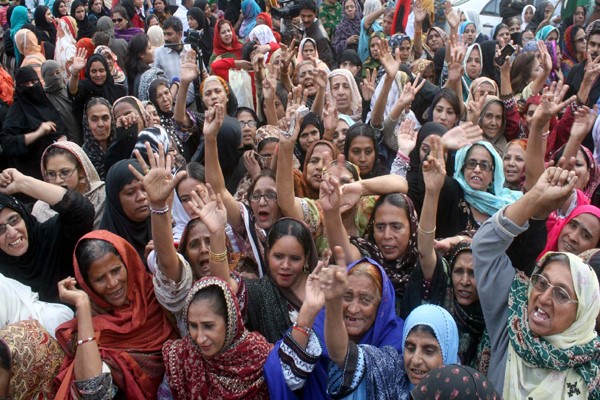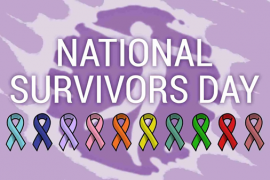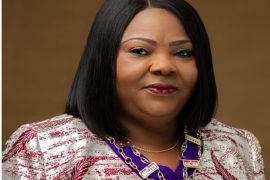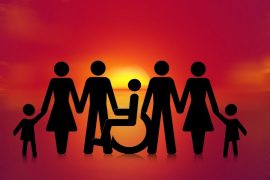The world can be a peaceful and better place when all forms of gender inequality are totally abolished through women empowerment. Empowering women in all spheres of life like their men folks will create an atmosphere for better development in our societies.
For instance, increasing women and girls’ education, will contribute to the higher economic growth and personal development. Research in some part of Africa has shown that, on average, women with secondary education have three fewer children than those with no education at all. Owing to these merits, as well as the imperativeness of ensuring that the rights of women are upheld, the UN has made women empowerment a pertinent part of sustainable development goals.
In order to enhance women empowerment in Africa, there are few practical ways that will aid the restoration of dignity and create educational and economic opportunities for women.
Abolition of Early/Child Marriages
World Bank statistics have stated that approximately 15 million girls worldwide are married off before the age of 18. Early marriage causes not only negative personal development but economic issues in the lives of women as well.
The effect is human rights violations- young girls are disempowered and often abused. Because many drops out of school and are unable to find employment, lack of education and poverty are other effects. Statistics have shown incidents of complications in pregnancy and childbirth, as well as high risks to contracting HIV/AIDS. Child marriage hinders both the personal development and economic empowerment of women, which is why abolishing this practice is, included as part of the sustainable development goals to uphold the human rights of women and girls.
The quest to eradicate child marriages in Africa has gathered momentum, as seen by the work done by Malawian chief Theresa Kachindamoto. The data disclosed by UNICEF states that this Chief in 2016 had annulled over 800 child marriages over a 3-year period in one of the Malawian district near Lake Malawi. The aim was to ensure that children go back to school to get educated, as well as minimize abuse and health risks associated with early child marriage. By doing so, children are ensured to have a better chance of living a healthy life. In order to achieve desired goals, enforceable laws were made, much to the apprehension of traditionalists, and to lobby with the Malawian government to change the marriageable age from 18 to 21.
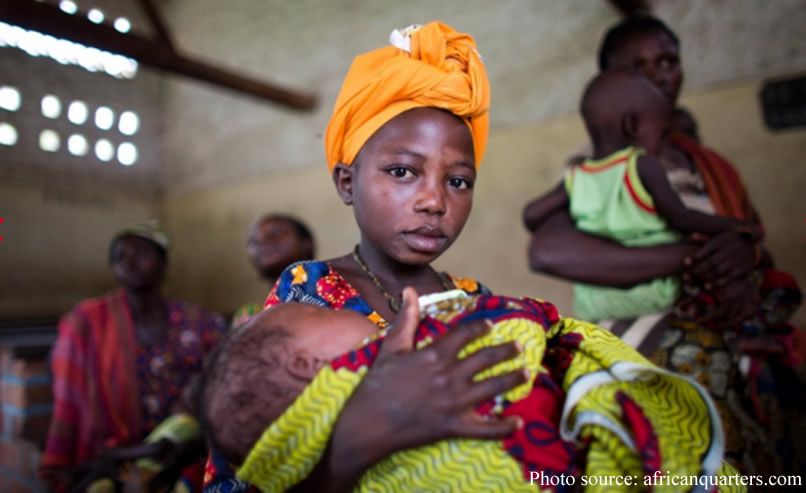
Different measures were applied to ensure the cultural and economic empowerment of children, especially girls, includes paying their school fees or finding sponsors for them and ensuring that children stay in school through a network of appointed mentors.
Protection of Women Rights
In Africa, there are so many cultures, customs, and traditions that infringe on rights of women and children by subjecting them to abuse, as well as political and economic exclusion. Abolishing those customs in order to give girls a better future has been the work of Malawian gender rights activist Memory Banda, who has been working with the Girls Empowerment Network to stop the prevalence of child marriage and some prejudicing customs. This custom is considered to be sexual initiation by older men on girls to initiate the girls into adulthood. Forceful marriages pose a lot of risks for girls, including contracting HIV/AIDS, falling pregnant and being forced to drop out of school, and developing health complications associated with early pregnancy.
This philanthropist’s work on women empowerment and the Girls Empowerment Network led to an alliance with community leaders in a district in southern Malawi to develop bylaws that penalize men who engage in the practice of child marriage. The advocacy also led traditional authorities to increase the legal marriage age from 18 to 21.
Enlightenment of women via Social Media
The media (social) has evolved from merely being a space for friends to share their lives with each other, to be a space for enlightenment and inclusion. So far, the world has shown slow attitude to change in the views on equal rights for women, social media communities can provide much-needed support as women band together to talk about their issues and institute change in their lives at the grassroots level.
‘Female in Nigeria’ Facebook group is an example of such an educative platform. “It’s a safe place for a woman who has something to say” according to its founder Lola Omotola. She started the group after the kidnapping of more than 200 girls from Chibok in northeastern Nigeria in 2015. “When you grow up in a place where a woman’s voice is not even valid, everything reinforces the idea that we’re not good enough,” she claimed as the reason of motivation for starting the group.
The group is adjudged a safe haven for women to share their life experiences and seek advice from each other where they feel necessary. Concerns such as marriage, gender discrimination, and domestic abuse are just some of the experiences shared by women in the group.
Nigerian women find themselves in a society that is slow to change its view on women’s rights and gender discrimination, FIN provides a platform and a voice to women who have been silenced by cultural customs and societal expectations.
Empowerment via Small Businesses
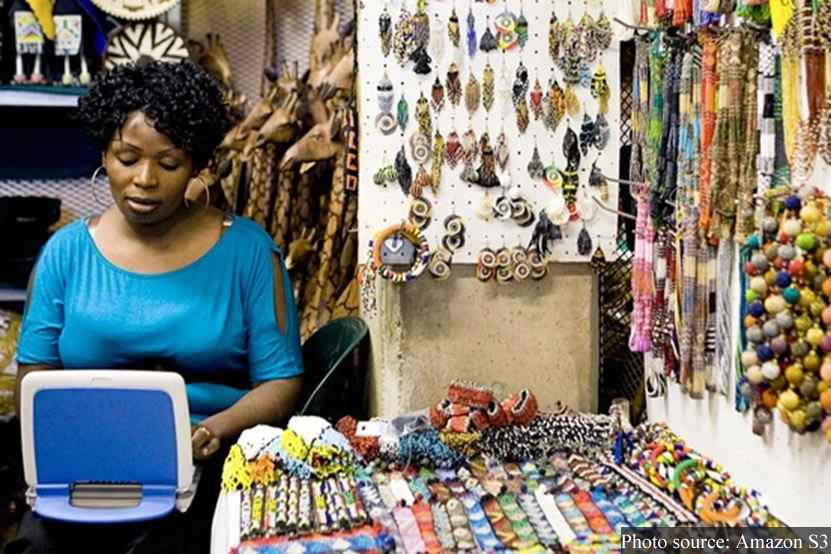
Empowering women through small businesses is a positive strategy which will also benefit all the members of the society by providing jobs and opportunities for franchises. Bee farming in Africa has been one of many prime examples of how small businesses can empower women.
The practice of bee farming in Ethiopia is largely traditional; however, modernizing the sector has had a positive influence in attracting women to the area. Women have also been encouraged to join the sector through assistance in accessing funding and land for their business ventures. Their main source of income has come from selling products, like honey, locally at markets, which accounts for approximately 90% of all sales.
In Kenya, Bee farming has attracted approximately 50% of women. This can be attributed to a high demand for Bee products from the East African nation and affordable access into the sector- farmers don’t need large capital or land to enter into bee farming.
Another good sector is the poultry farming which helps in providing opportunities for empowerment through job creation for women. One of the prime businesses making strides in poultry farming is AKM Glitter Company, formed by businesswoman and head of African Women in Agribusiness chapter in Tanzania, a Graça Machel Trust initiative, Elizabeth Swai.
Elizabeth Swai’s Company specializes in poultry farming and has a number of hatcheries that provide day-old chicks and fresh eggs to market. Through her business, she has created a network of more than 100 farmer groups. In these groups, she provides training and support so that farmers are equipped to start rearing their own chickens. In return, she buys eggs from these farmers and sells them at markets. Many businesses have grown as a result of this collaboration, empowering business owners to sell their own produce.
She stated that her work was her passion and also a huge part of her life. “I wanted to develop a model that could have a positive effect on Africa and to empower our young women and youths in general”.
Living an indelible mark on the lives of rural communities has been one of her biggest motivators. “Their household health and their education are improved through our work, and some of the profits are being used to help develop rural areas so children have clean water, classrooms, toilets, and access to basic facilities.”
Women Empowerment via Technology and Energy
Sequel to fourteen countries across the continent with affordable solar power being funded by African-American singer Akon and Morocco leading the way in solar power with the Ouarzazate Solar Power Station, innovations in technology and energy are gaining momentum across Africa.
Eunice Ntobedzi, a businesswoman and an innovator in the energy sector has also employed women electrical engineers to support the development of projects in Botswana. She supported the Science, Technology, Engineering, and Mathematics (STEM) movement in the country.
Owing to her company’s prowess, communities that are often unreachable now have reliable and affordable access to power, while increasing the sharing of renewable energy in the Southern African Development Community. With many women having direct access to energy, Eunice believes that there will be significant health improvements. Additionally, by focusing on educating women in the STEM field, which is sought after both on the continent and across the world, women will have better access to educational and economic opportunities. Access to these opportunities will help women lift themselves sustainably out of poverty and in turn help in promoting economic development in their societies and continent at large.
The empowerment and acceptance of women in all spheres of the society are therefore very sacrosanct. This will not only enlighten the women but will go a long way in sustainable development in African societies.
Source: UN Report

